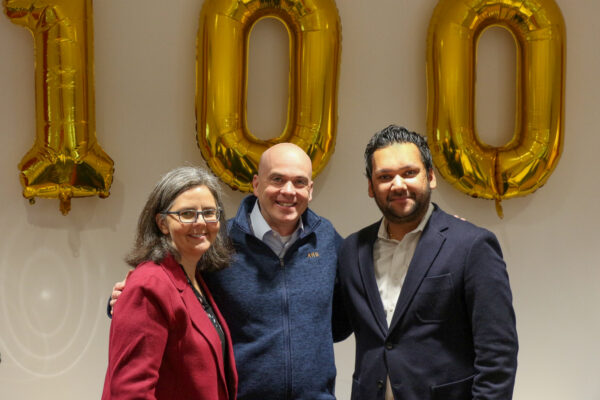The ACLU of New Jersey has a long, proud history of appearing before the New Jersey Supreme Court to provide expertise in the most pressing civil rights cases of our time. In November, ACLU-NJ Director of Supreme Court Advocacy Alexander Shalom presented his 100th oral argument before the New Jersey Supreme Court, a distinction that symbolizes both the expertise that he brings to the ACLU-NJ team and docket, as well as our mission to expand and protect civil rights and liberties for all New Jerseyans.
The ACLU-NJ presented oral arguments in more than a third of the cases heard before the Court in the last year alone. Our consistent presence before the Court is an indispensable part of our integrated advocacy model to preserve and defend civil rights for all New Jerseyans. The breadth and impact of our legal docket has shaped the trajectory of our state – and it should go without saying just how rare it is for an attorney to reach this impressive milestone.
Most often, our arguments before the Court come in the form of amicus briefs. Amicus curiae translates from Latin as friend-of-the-court and is a legal mechanism to provide additional relevant arguments or context in briefs filed by people or organizations who are not directly involved in the case. Amicus briefs are a strategic and efficient way to have a broad impact. By focusing on issues already on appeal, these briefs harness existing opportunities to shape areas of the law that affect all New Jerseyans.
In addition to the cases the ACLU-NJ brings to the New Jersey Supreme Court, since 2011 our arguments as amicus curiae before the New Jersey Supreme Court have increased by 500 percent. In that time, we have appeared in some of the most impactful court decisions that have defined our state, including:
- North Jersey Media Group v. Lyndhurst, which increased police transparency in November 2016.
- State v. Robinson, which began to define the contours of New Jersey’s bail reform law in March 2017.
- State v. Ibn Maurice Anthony, which added additional safeguards to improve the reliability of eyewitness identification procedures in March 2019.
- Motion to Modify Prison Sentences, which created a release process for incarcerated people during the COVID-19 pandemic in March 2020.
- State v. Melvin, which ended the practice of sentencing people based on conduct for which they were acquitted, in February 2021.
- State v. Andujar, which addressed implicit bias in jury selection in July 2021.
- State v. Roman-Rosado, which narrowed legal justification for pretextual stops in August 2021.
- State v. Comer, which provided second chances to children who had received exceptionally long sentences, in January 2022.
Cases like these decide the major civil rights issues for years to come and are an essential part of the ACLU-NJ’s mission to preserve and advance the individual rights and liberties guaranteed to every New Jerseyan by the state and federal constitutions in courts, in the legislature, and in our communities.

